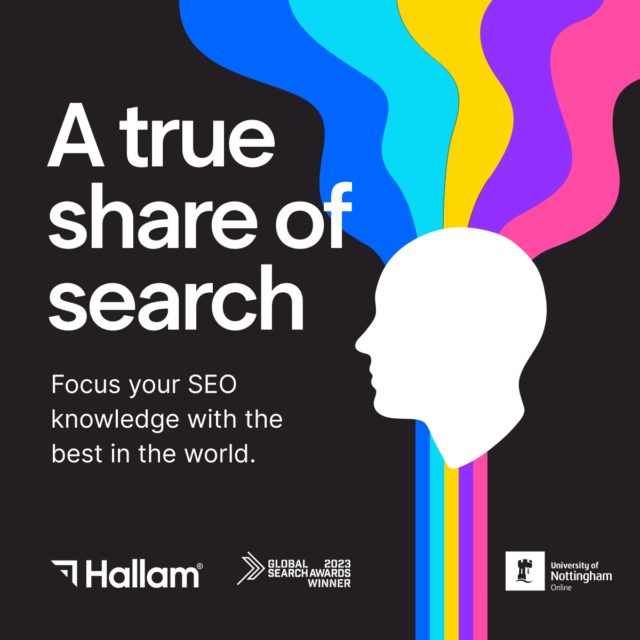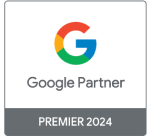E-E-A-T, meaning Experience, Expertise, Authoritativeness and Trustworthiness, is part of Google’s Search Quality Rater Guidelines: the handbook that Google workers use to evaluate the quality of search results. These Google employees, known as Quality Raters, give feedback to enable Google to measure the success of its algorithm updates, with the latest update of the Search Quality Rater Guidelines being in December 2022.
Although E-E-A-T is not technically a direct Google ranking factor, Google wants to serve search results with strong E-E-A-T, making it a very important concept in SEO across 2024 and beyond. In fact, algorithm updates – such as the helpful content update – are always linked to E-E-A-T, with Google developers warning: “The helpful content update aims to better reward content where visitors feel they’ve had a satisfying experience, while content that doesn’t meet a visitor’s expectations won’t perform (in search engine results pages) as well.”
So, while E-E-A-T might not be a particularly recent development, it’s absolutely vital that brands get their E-E-A-T right or else risk their content performing poorly in the SERPs.
Here’s what you need to know to achieve better SEO results in 2024.
E-E-A-T matters most for YMYL pages
Google splits topic types into two categories: YMYL (the slightly dramatic initialism that means ‘Your Money or Your Life’) and non-YMYL.
E-E-A-T’s importance will vary depending on the level of YMYL a site has.
YMYL sites
- Finance – sites that offer financial advice (like fintech companies)
- Shopping – sites providing information about shopping research
- News and public information – misinformation about politics, current events, etc.
- Medical and safety – sites that offer guidance regarding physical and mental health (that includes fitness sites)
- Government and law – if a page informs readers about the law, local politics, voting and the like, it must provide up-to-date and accurate information
- Associations – pages making claims about people based on qualities such as ethnicity, race, nationality, religion, age, disability, gender and gender identity, sexual orientation, or veteran status get closely monitored to protect users
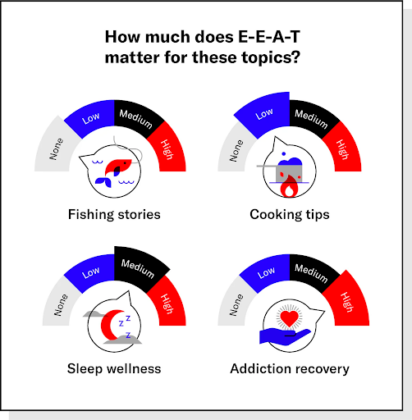
Considerations and best practices
Experience
Quality content often demonstrates the creator’s first-hand experience with the subject matter, proving that suggestions are tried and tested, and that insights are authentic.
To demonstrate experience in your content you need to:
- Discuss personal experiences and opinions
- Provide unique product photos where appropriate to back-up experience
- Write in first person and provide examples of your past experience
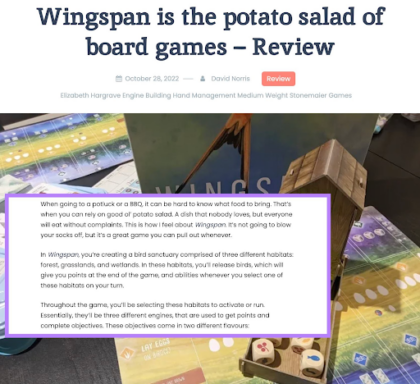
The above example shows a first-person blog that discusses a personal experience of using a board game, offering a review of their experience.
Expertise
Quality content also should also show a level of expertise from the author regarding the subject matter. Make sure to set up a bio for you or your client where expertise can be constantly shown.
- Refer to that expertise when writing the content.
- Link to potential case studies, awards, certification, studies your client might have about the topic while writing.
- Write unique content that is not already available.
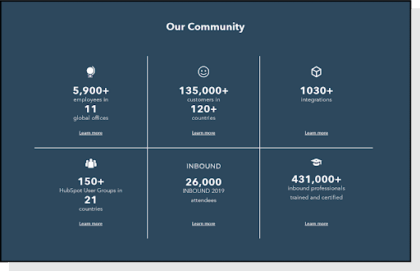
Pages such as ‘About us’, ‘Meet the Team’ or the ‘Our Community’ section on a website (such as the image above) that details how many employees they have, how many customers, integrations, attendees to an event etc. can also prove expertise.
Authority
Your authority can be built up in a number of different ways and will help Google to trust your content:
- Engage in forums about the topic
- Showcase your expertise and authority via social media channels
- Get coverage and links from authoritative pages that are important in the industry/niche by providing commentary
- Participate in guest posts or ask authoritative people in the industry to write content or commentary for your blog, too
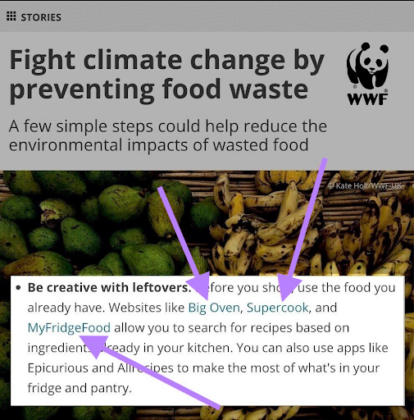
The article above gives a good example of including backlinks to authoritative pages; while linking to others can sometimes help you to gain links in return, it also shows Google that your content is linked, proving authority.
Trustworthiness
Your content’s trustworthiness is determined by the transparency, legitimacy and accuracy of all the content on your site. There are a few ways to increase trustworthiness:
- Be transparent with your content – do not copy and paste content from other sources and, if you do, make sure to rephrase the content and cite its origin
- Research your topic, explain the process you followed and write content that is new and unique
- Source other expert content or opinion, too
- Be helpful and empathetic – do not try to sell your product or brand, and try to help the user first and foremost
Healthline’s website (below) shows links in their blogs to trusted databases and studies – a way of showcasing your content’s trustworthiness.
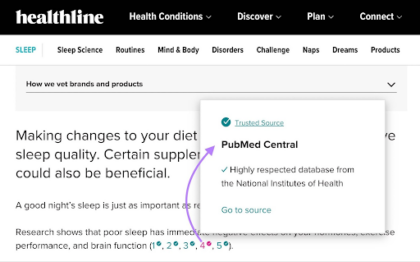
Speaking of authority, how does Digital PR fit into this?
Before committing to a purchase, 62% of shoppers search for a brand online they are not familiar with.
Online reputation was highlighted as the top way to improve trust with customers. Nearly 6 in 10 consumers say their default tendency is to distrust something until they see evidence that it is trustworthy.
Historically, we’ve talked about the shop window being a clear representation of a business. Is it clean, is it messy, is it appealing? Your presence on Google is an extension of that and customers are wanting to know whether you’re a brand that aligns with their values.
Digital PR is the act of creating external credibility, using a brand’s expertise and experience to create trustworthy PR stories that position brands as voices of authority within their sector.
What else does digital PR cover?
Experience
Your catalogue of onsite and offsite content that showcases your content creators’ first-hand experience in the sector – this includes reviews.
Expertise
Interviews, guest posts, thought leadership articles and more across relevant websites and titles.
Authority
Brand mentions and backlinks from respected media titles is an extremely effective tool for building your brand and website authority.
Trustworthiness
Links from reputable third party sources act as a clear signpost to Google that your website is trustworthy.
But E-E-A-T doesn’t just affect brands – it affects news publications, too. Some news publishers in the UK, US and elsewhere have been “profoundly affected” by a string of Google Search and Discover updates since September 2023, affecting traffic and, as a result, revenue.
Unfortunately, we’re now operating in a world of disinformation, AI illiteracy and cancel culture, with reputable news outlets struggling to perform as well in search engine results pages – exactly what E-E-A-T attempts to combat.
Done well, Digital PR is your chance to stand out from the crowd online.
Here are three ways how
Business updates
Share company, product, service, employee, and CSR good news to your local titles and industry niche publications.
Industry or topic thoughts
What are the challenges facing your industry and what solutions can you provide? Share these insights from your senior leaders across relevant publications.
Reactive insights
The news is a 24/7 rolling cycle and journalists always need an expert to add weight to their story.
Time for a success story
So that’s the theory – how does it work in practice? Let’s talk about how you can become more efficient by creating collaborative strategies, all in the name of E-E-A-T.
Here’s the outcome of a collaborative, E-E-A-T-friendly, SEO and Digital PR strategy for one of our clients, More Kitchens, who experienced:
- 302% increase in conversions (compared to 2020)
- 165% increase in overall web traffic in the same time
- 31 backlinks from national and industry publications
Discover the opportunities
Solid content strategies begin the same way, with an audit and research, strategy collaboration and content gathering.
You might build your strategy by doing the following:
- Audit of current content on-site (including landing pages)
- Updated keyword research
- Link and competitor gap analysis
- Identify internal and external experts
- Content roadmapping
- Search and trends analysis
- Social media
- AlsoAsked
Don’t build links for links’ sake: PR outreach can’t guarantee you’ll get a link but, where possible, it’s much better for optimum Google performance to get a link from a key publication going straight to the source, such as a category or product page.
Creating content that your audience is searching for is great; creating content that can also be repackaged and sent to journalists is even better.
Plan content into a reusable, evergreen, strategy that is used year in, year out.
Planning for the future and recommendations
E-E-A-T is going nowhere, so make sure to:
- Create content that’s unique and fresh
- Recruit internal experts to write for you
- Share and repurpose content for social media
- Keep up to date with and follow the latest trends
- Analyse and look after your reviews
- Create evergreen content strategies that can be updated and used again and again and again
- Earn regular backlinks from relevant titles to demonstrate authoritativeness
- Don’t build links for the sake of having them – building them to a specific category, product and/or service pages will be more valuable to your brand in the long run.
If you’d like some advice around introducing E-E-A-T into your content strategy, please get in touch with our Organic team.



